2014 | Perspektive Deutsches Kino
A Good Mix of Newcomers
The 2014 Perspektive Deutsches Kino programme is especially diverse, providing a platform for both genre films and typical festival films. Linda Söffker speaks in an interview about moments of self-reflection, signature styles, the joy of playing with cinematic methods, free association and a film screening at the JVA Tegel penitentiary.
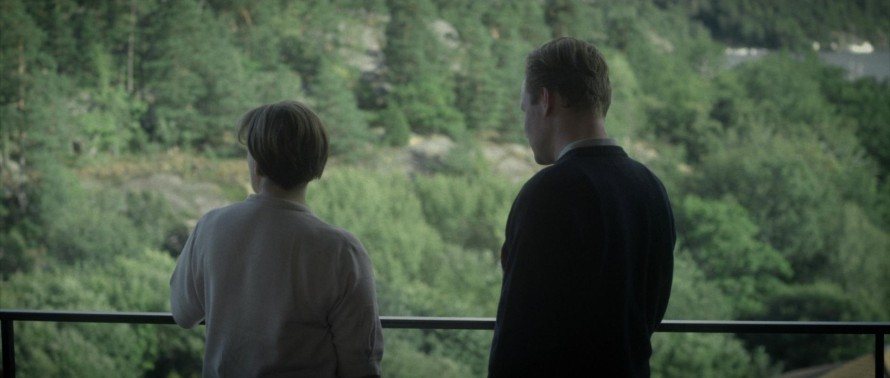
Films of the Perspektive Deutsches Kino 2014
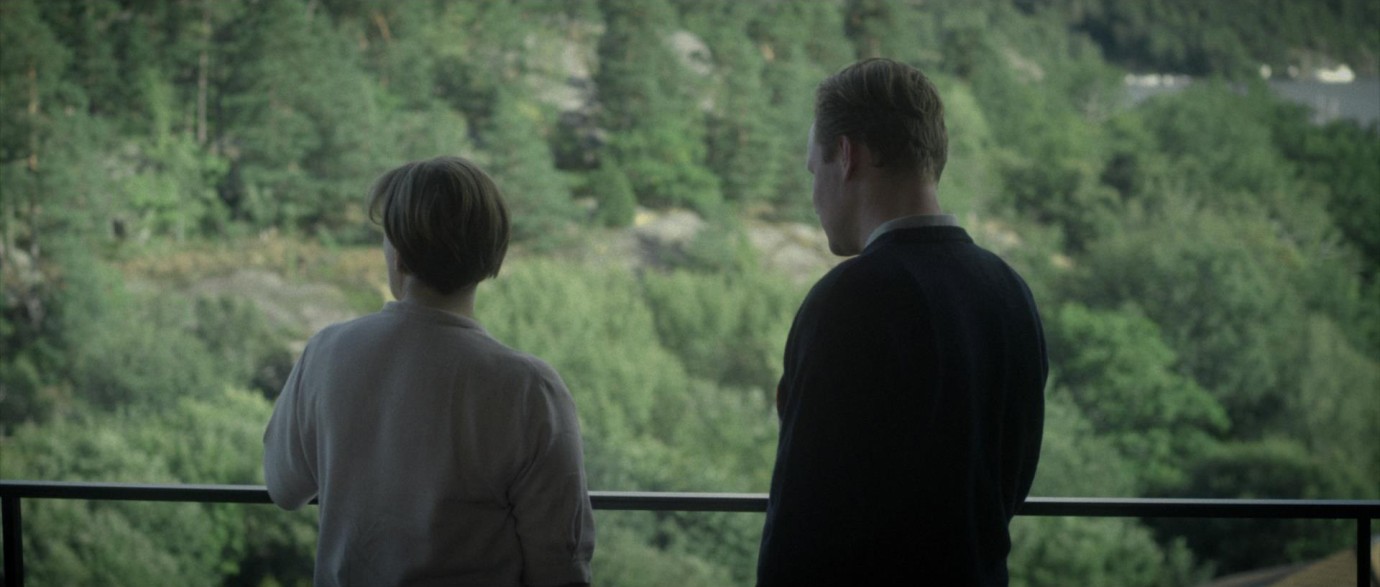
Gunilla Röör, Hendrik Kraft
Lamento by Jöns Jönsson
DEU 2013, Perspektive Deutsches Kino
© Buntfilm Juretzka & Hering
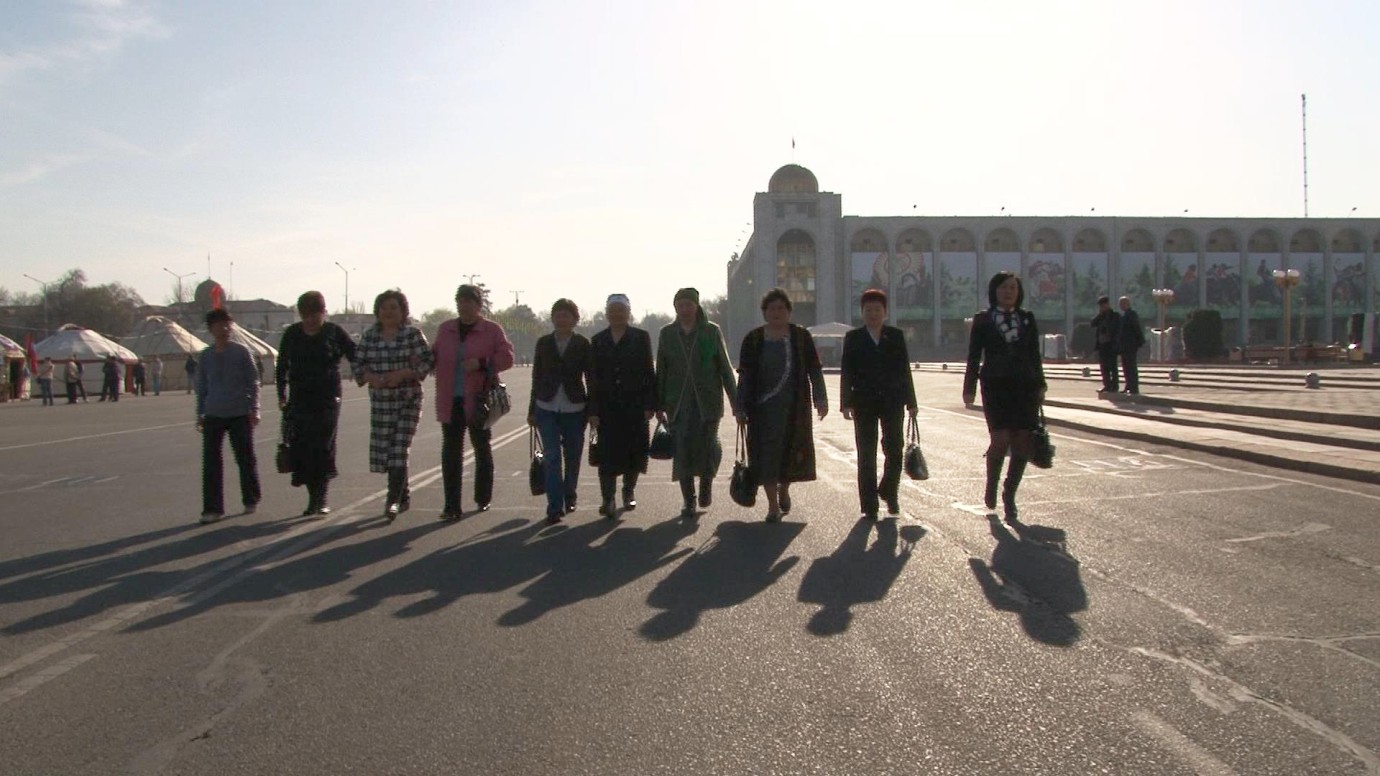
Flowers of Freedom by Mirjam Leuze
DEU 2013, Perspektive Deutsches Kino
© Mirjam Leuze
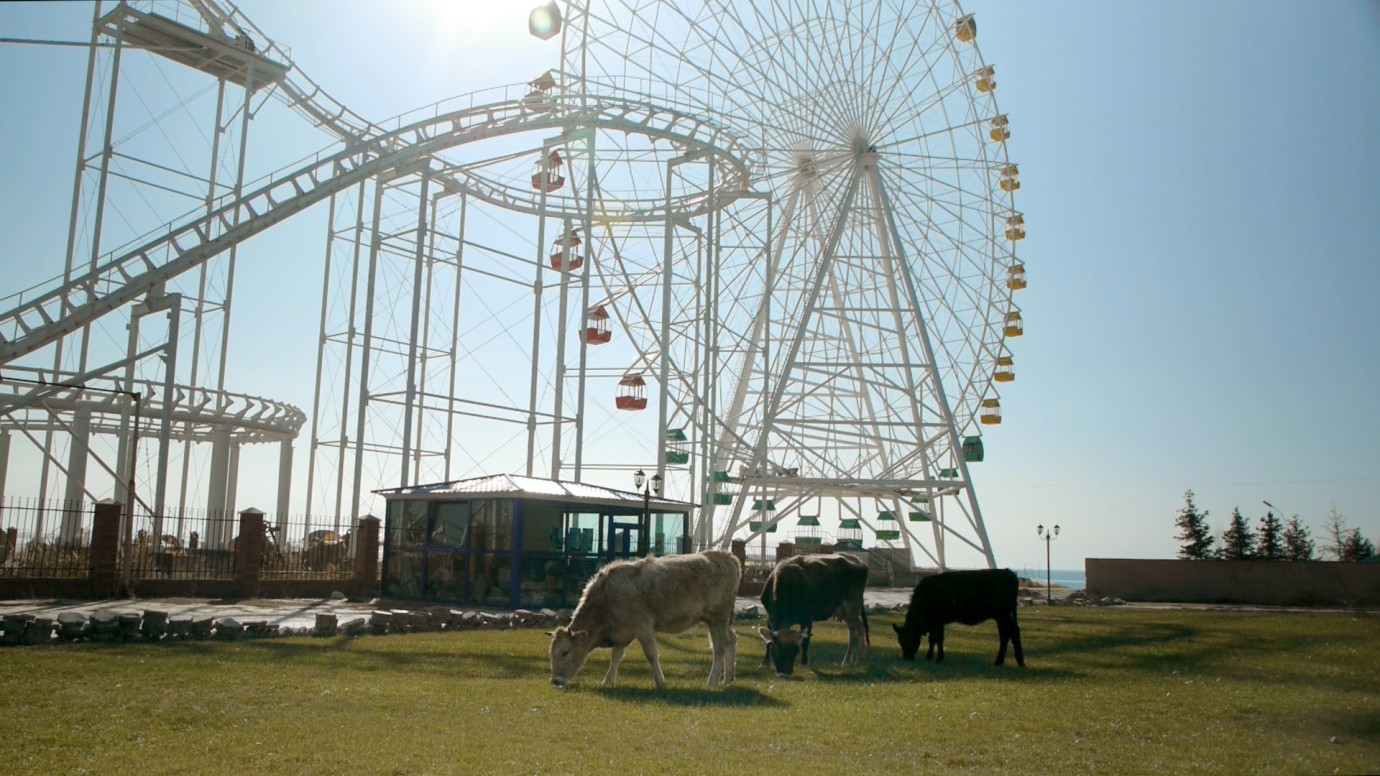
Bosteri unterm Rad | Bosteri Beneath the Wheel by Levin Hübner
DEU 2013, Perspektive Deutsches Kino
© F. Klein
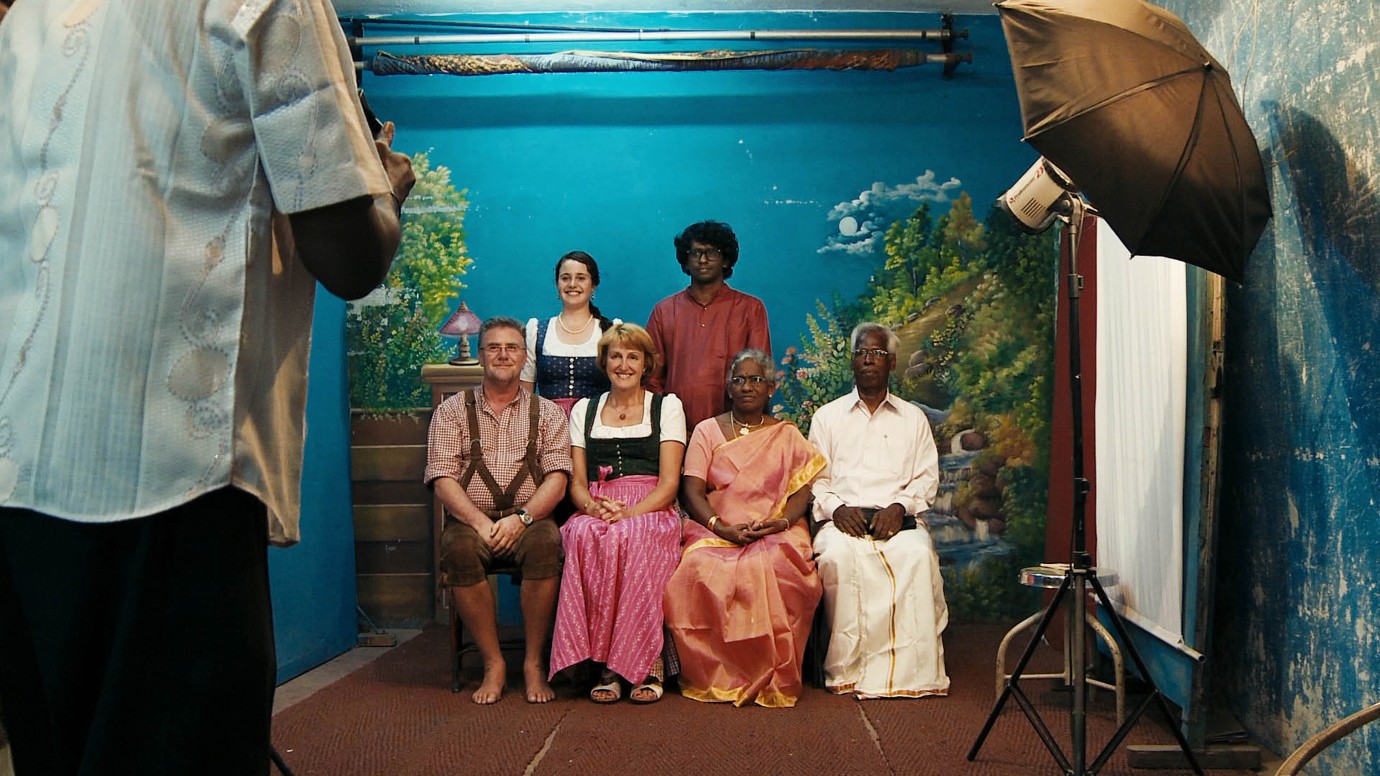
Amma & Appa by Franziska Schönenberger, Jayakrishnan Subramanian
DEU 2013, Perspektive Deutsches Kino
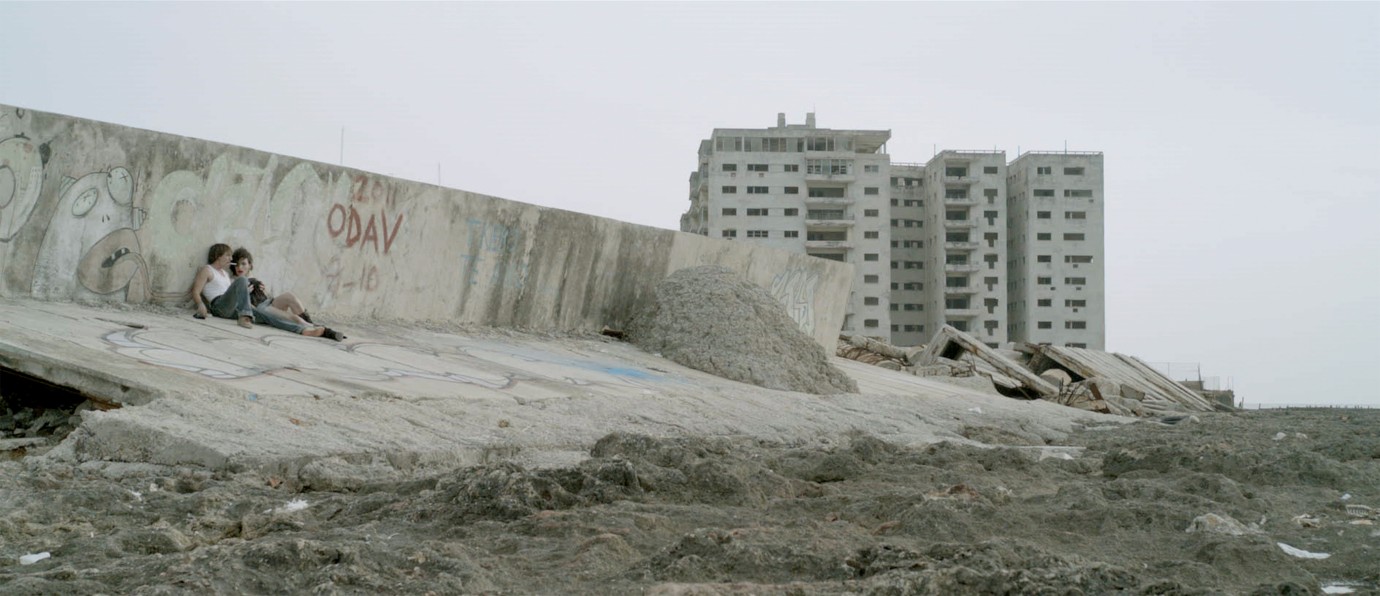
Carlos Rivero, Antonio Alonso
El carro azul | The Blue Car | Das blaue Auto by Valerie Heine
DEU 2014, Perspektive Deutsches Kino
© KHM / Valerie Heine
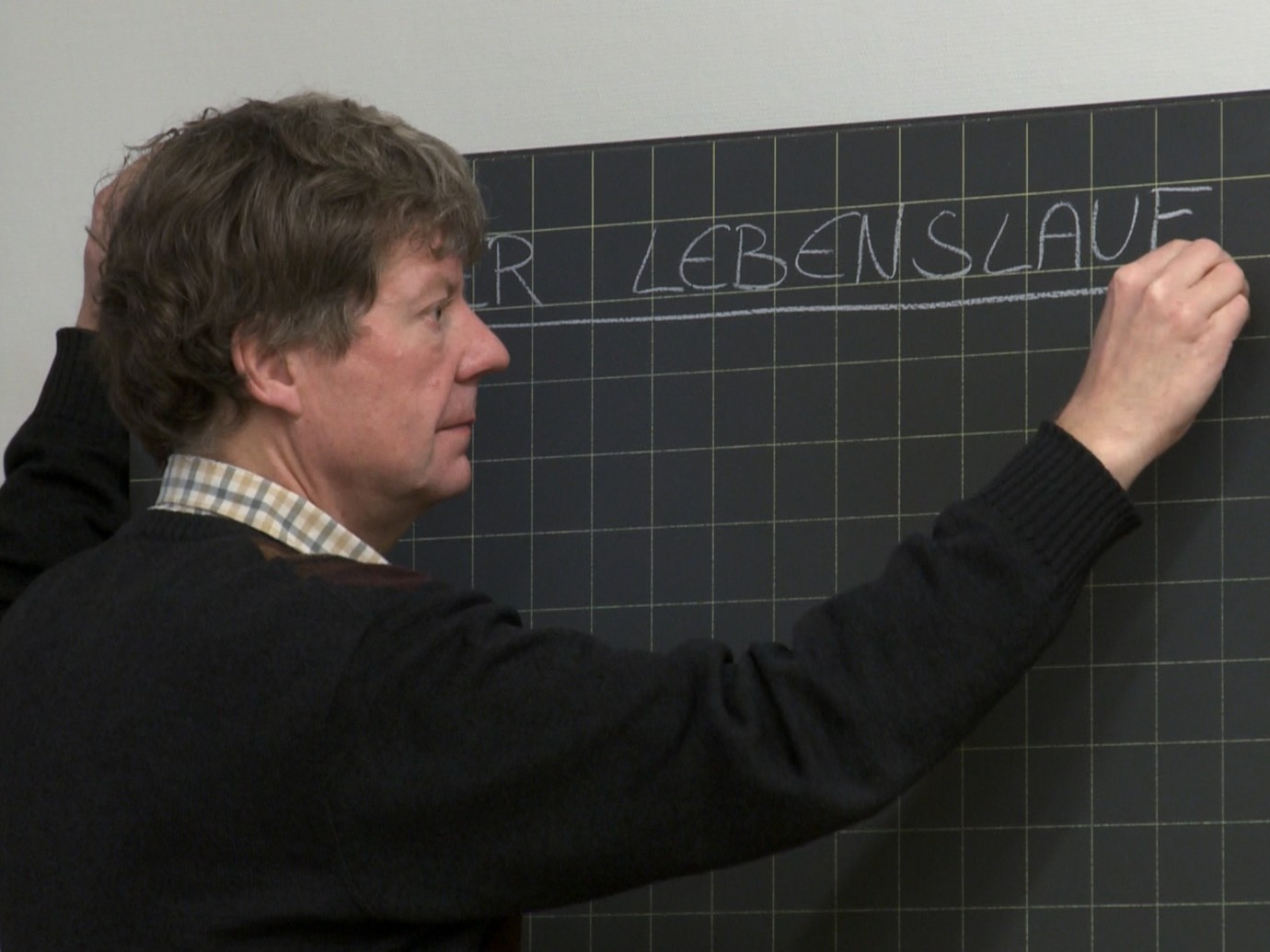
Christian Zingg
Neuland | Unknown Territory by Anna Thommen
CHE 2013, Perspektive Deutsches Kino
© Gabriela Betschart
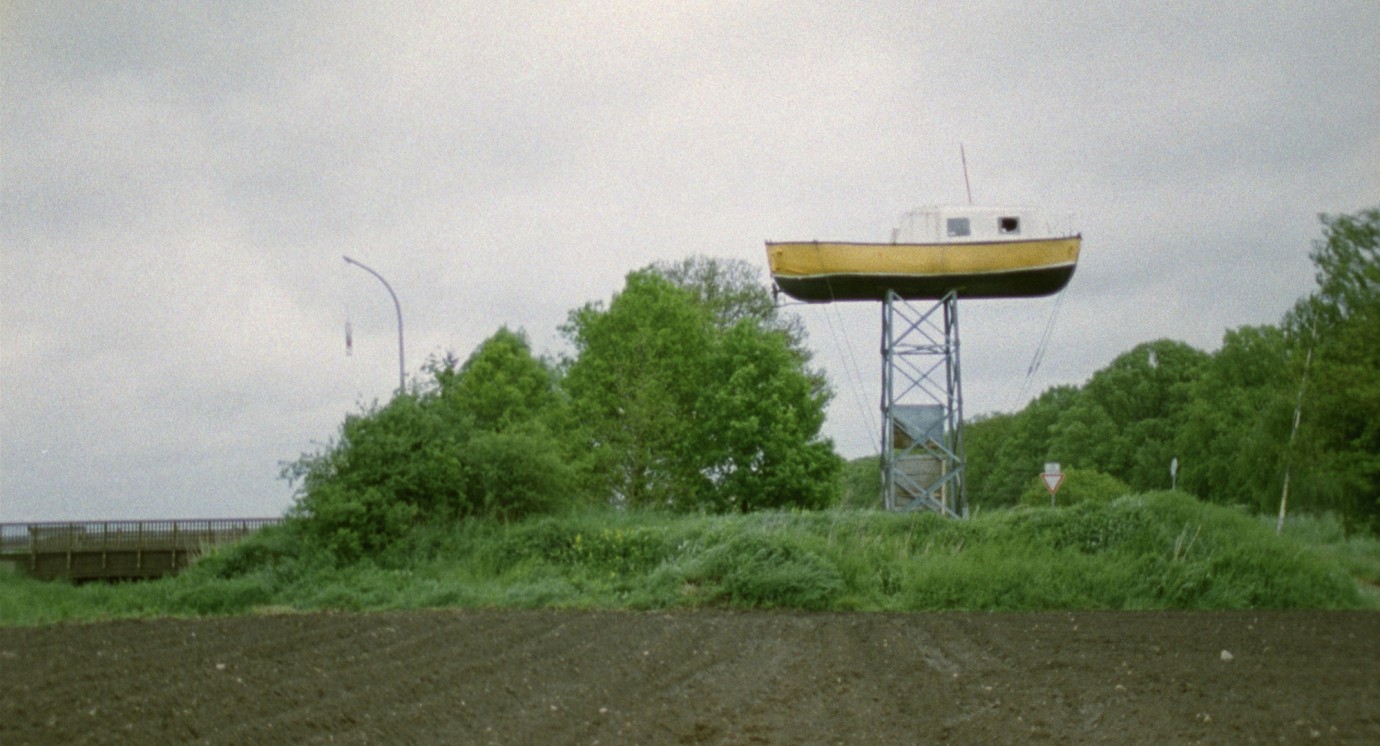
nebel | fog by Nicole Vögele
DEU 2014, Perspektive Deutsches Kino
© Stefan Sick

Szenario | Scenario by Philip Widmann, Karsten Krause
DEU 2014, Perspektive Deutsches Kino
© Works Cited
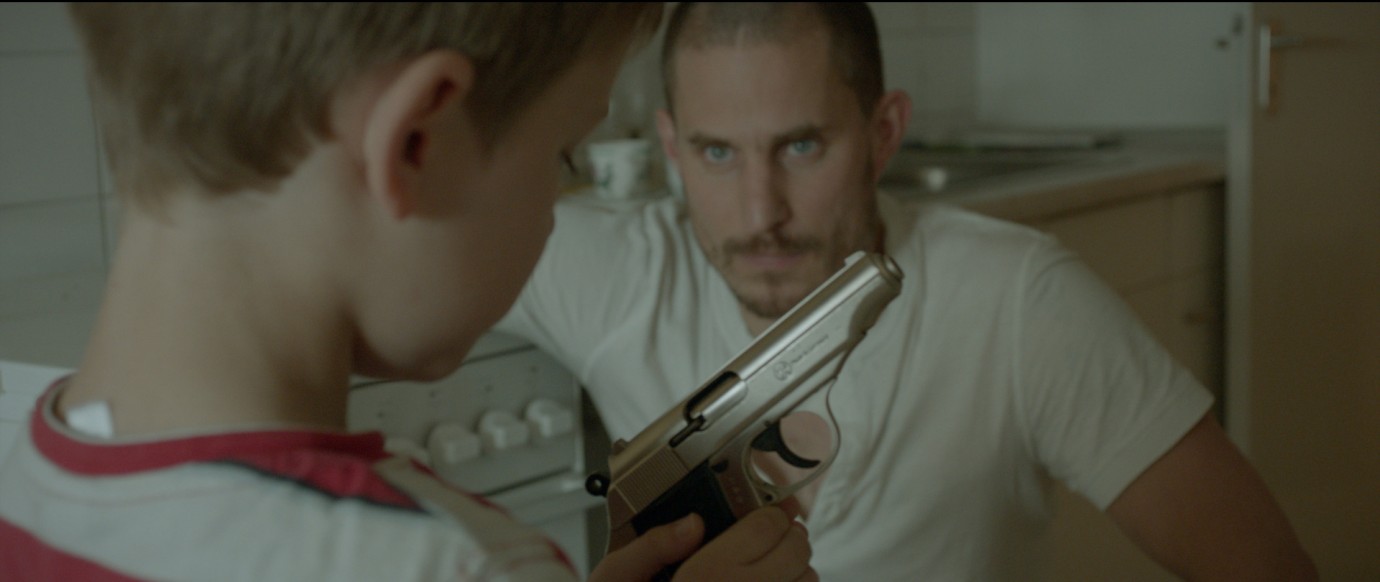
Juri Winkler, Clemens Schick
Die Unschuldigen | The Innocents by Oskar Sulowski
DEU 2013, Perspektive Deutsches Kino
© Roland Stuprich
You wrote in the press release: A particularly noticeable characteristic of this year’s Perspektive Deutsches Kino programme is that many young filmmakers found their stories abroad. Is it suggestive of wanderlust felt by the directors, or is this development also connected to their personal biographies?
I assume that wanderlust has always been there. But cheaper flights, plus less expensive and lighter audio and camera equipment make wandering easier. In addition, the number of international co-productions is increasing, which creates more overall movement within the newcomer generation. On the flipside, the fact that more and more foreign directors are educated in Germany also plays a role. Many of them search for and find themes in their home countries. An example in this year’s programme is the winner of the First Steps Award 2013: Lamento. Director Jöns Jönsson completed his studies at the Film and Television University “Konrad Wolf” (HFF) in Potsdam-Babelsberg, but the fictional story in his graduation film is set in his native Sweden. Lamento is a quiet, very touching film about a mourning mother whose daughter committed suicide.
The directors of the documentary films Flowers of Freedom by Mirjam Leuze and Bosteri unterm Rad (Bosteri Beneath the Wheel) by Levin Hübner, on the other hand, found their themes in Kyrgyzstan, despite not having any biographical connection to Kyrgyz culture. Bosteri is a vacation spot north of the mountain lake Issyk-Ku. For two months every year, the main attraction there is a Ferris wheel that’s closed for the other ten. And Flowers of Freedom is set south of the same lake, where environmental activists are fighting against a Canadian company that runs a gold mine.
In the case of Amma & Appa, director Franziska Schönenberger fell in love with an Indian man. In her very personal documentary, she tells about her wedding plans and makes the acquaintance of his family and native country. This self-reflective, private kind of moment is found in newcomer works again and again. The family often plays a central role, like in this year’s opening film Hüter meines Bruders (My Brother's Keeper) by Maximilian Leo, and also in El carro azul (The Blue Car) by Valerie Heine. Both are stories about two brothers.
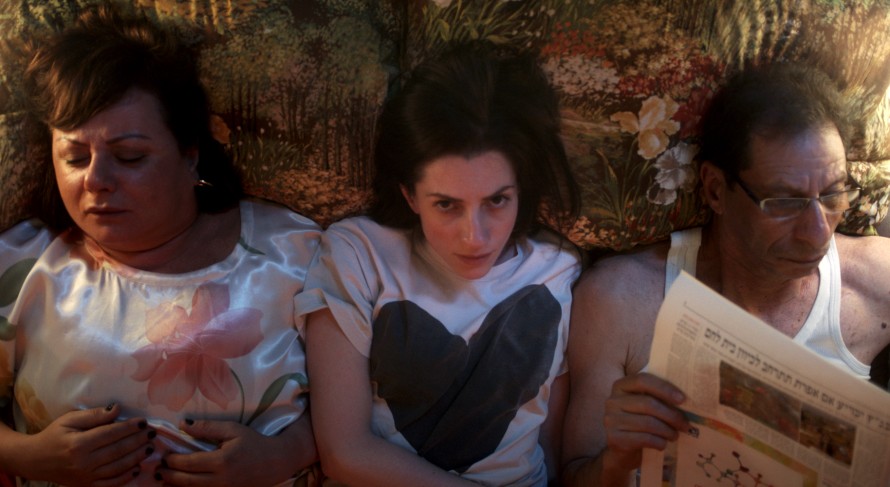
Hana Laslo, Neta Riskin and Dovaleh Reiser in Anderswo by Ester Amram
Anderswo (Anywhere Else) explicitly examines the subject of going back home…
Just like the director, the central figure in the film grew up in Israel but studies in Berlin. At the beginning Berlin is cool, but when problems crop up at work and in her relationship, Noa longs for her family and her home. Yet soon after, she realises that she doesn’t feel at home in Israel anymore either.
Is Neuland (Unknown Territory) the documental companion piece to Anderswo?
Neuland is a guest at Perspektive. For the past three years, we’ve screened the winner of the First Steps Award for Best Documentary on the last Sunday of the festival, Berlinale Kinotag. In Neuland, Anna Thommen paints a cinematic portrait of a Swiss teacher who gives German lessons to refugees from Afghanistan, Cameroon, Serbia and Venezuela. A great teacher, one who tries to make it possible for these youths to be a part of society. One of the questions raised is the degree to which the students must adapt to their environment, and how easy it is to lose oneself in the process.
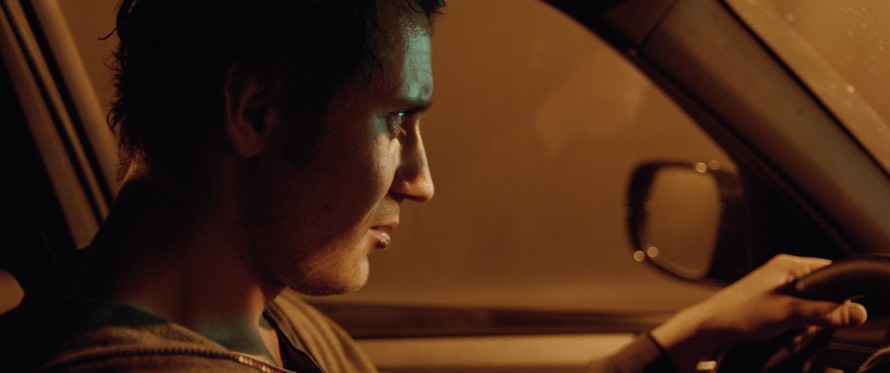
Sebastian Zimmler in Hüter meines Bruders by Maximilian Leo
On the Playful and the Imperfect
In the press release, you also mentioned films by directors who tell familiar stories with new images in an interesting dramatic composition. Which films in this year’s programme fit that description?
For me, that’s more of a general title for Perspektive Deutsches Kino. Mirjam Leuze, for instance, has directed a number of documental formats for television. With Flowers of Freedom she produced her first cinematic feature documentary, in which you can sense her efforts to consciously digress from a conventional TV narrative. She composes a panorama of ten women who are fighting for the rights of the victims of a chemical disaster caused by a Canadian gold mine. In the film, some stories aren’t told from beginning to end and there are temporal omissions.
In the opening film, Hüter meines Bruders, you can also sense the filmmakers’ joy in playing and experimenting with cinematic methods, even when that input isn’t immediately understandable to the viewer. Light and the camera are both used to create a very specific atmosphere. Colours change, the story flow is interrupted, and impressionistic images transport emotions that aren’t explicitly represented in the dialogue. The film might have small incongruities in composition, and leave some questions open, but for me, the imperfection and missing routine are what make it a typical Perspektive film.
Would you describe this year’s Perspektive programme as a reflection of German newcomer film overall, or did you specifically seek out and choose notable exceptions?
Both. I always try to create a picture of what’s happening right now, and that includes picking up on signature styles – aesthetic and thematic – and finding a good overall mix: films by men and women, independently produced or with a university background, films by students and graduates and career changers. This year’s programme is particularly diverse.
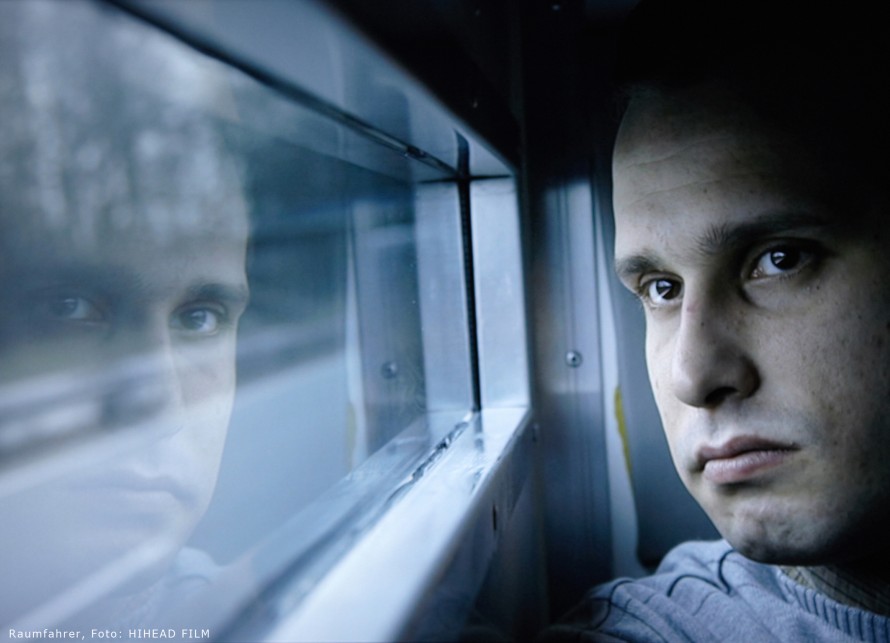
Raumfahrer by Georg Nonnenmacher
Free Association and Gripping Genre Films
Georg Nonnenmacher has worked primarily as a gaffer up to now. With Raumfahrer (Spacemen), he’s created a documental film in wide-screen format that attests to his expertise. Convicts are transported from one prison to the next. En route, they watch Germany pass by through an observation slit. Though only the landscape and one convict are seen, the viewer also hears three other inmates in voiceover. We plan to screen the film at JVA Tegel penitentiary, not least because Georg Nonnenmacher would like to express his thanks for the opportunity to carry out his research, and for the thoughts shared with him by the inmates.
Raumfahrer is programmed together with nebel (fog). Nicole Vögele made a contemplative film on loneliness and the phenomenon of fog: early morning fog, the data fog of a Morse telegraph machine, the fog of stars that surrounds planets. Thoughts are freely associated here too – but this time the viewer’s thoughts.
The source materials for Szenario (Scenario) are journal writings by a businessman on his affair with his secretary, found in a suitcase in an attic. Filmmakers Philip Widmann and Karsten Krause supplement these historical finds with statistical information, using both - plus shots of a random German city - to create a picture of the country in the 1970s.
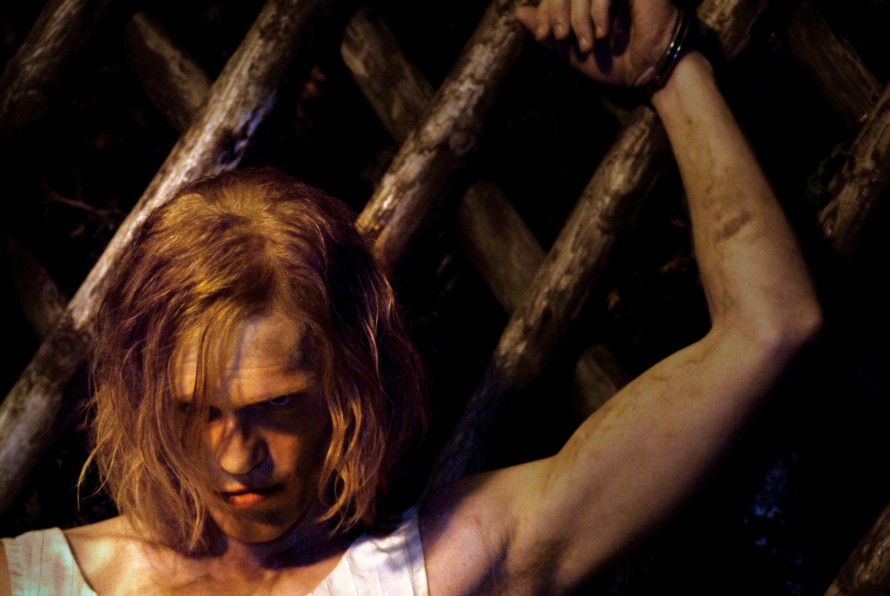
Pit Bukowski in Der Samurai by Till Kleinert
This year we’ll screen two films in the programme as Midnight Movies at 11 pm: the nightmarish thriller Der Samurai by Till Kleinert, and the horror film Tape_13 by Axel Stein. We want to provide a platform for genre films that usually have a hard time at festivals, but that also play an increasing role in the newcomer generation.
Second Steps on the Red Carpet
Kreuzweg (Stations of the Cross) by Dietrich Brüggemann is playing in this year’s Competition programme. His HFF “Konrad Wolf” graduation film Neun Szenen (Nine Takes), and his debut film Renn, wenn du kannst (Run, if You Can) were both in Perspektive, in 2006 and 2010 respectively. Does it make you proud to see Perspektive newbies make it to Competition?
Proud is the wrong word, because in the end, we didn’t have much to do with it. But of course I’m very pleased to see the progression of a filmmaker who started out with us! Newcomer filmmakers cut their festival teeth with us; we accompany their first steps on the red carpet, and we support them if they’re feeling uneasy in situations with the press and public. And at best, years later they pop up in Competition. Incidentally, Dietrich Brüggeman is the first of our alumni to do so. It feels good, and I wish him all the best for his premiere.
A number of Perspektive alumni are in this year’s Berlinale programme. Maximilian Erlenwein, whose short film Blackout was in our programme years ago (Perspektive Deutsches Kino 2005), is in Panorama with his second feature-length film Stereo. Both of his first long films were produced by Frisbeefilms, a production company founded by the brothers Alexander and Manuel Bickenbach following their studies at the Filmakademie Baden-Württemberg. We also showed their first film Katze im Sack by Florian Schwarz in the 2005 programme.
And Annekatrin Hendel, who presented her film Vaterlandsverräter with us three years ago, and won the “Made in Germany – Perspektive Fellowship” for her project Disko 2012, is in Panorama with Anderson, a film about the author Sascha Anderson. I’m a big fan of hers.
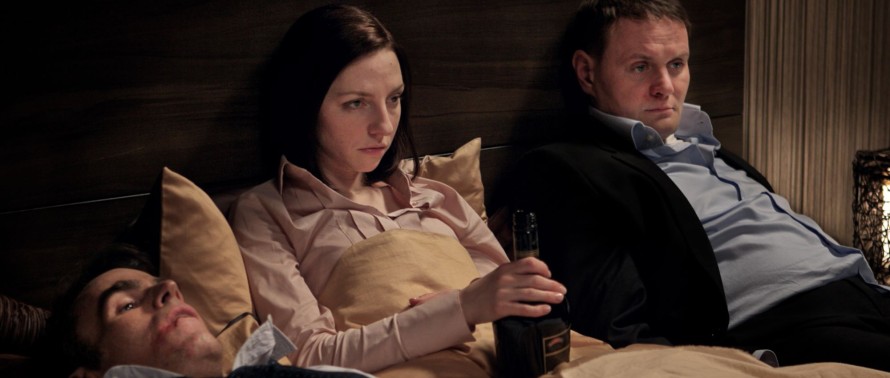
Sebastian Blomberg, Katharina Schüttler and Devid Striesow in Zeit der Kannibalen by Johannes Naber
What discussion events are planned?
With the support of Glashütte Original, we can once again continue the discussion series “Made in Germany – Reden über Film” at the HomeBase Lounge. We’ll talk about the “typical festival film” that wins awards worldwide, but might flop commercially, about genre films like our Midnight Movies, and also about works that I think will have an easier time at the box office due to a particular cast. Zeit der Kannibalen (Age of Cannibals) by Johannes Naber, starring Devid Striesow, Sebastian Blomberg and Katharina Schüttler, is an example of a cynical and socially critical chamber play in which the actors can really take advantage of their abilities. I’m curious to see how it does, and I’ve got a good feeling about it.
Oskar Sulowski was also fortunate enough to get a well-known face for his film Die Unschuldigen (The Innocents): Clemens Schick, who is also in the Competition film Praia do Futuro and in the Berlinale Special film Das finstere Tal (The Dark Valley). It’s a pleasure to see experienced actors share their know-how with newcomers. Die Unschuldigen is told entirely from the perspective of a child, moving with the central figure at eye level.
In a discussion that we’re presenting along with the French-German Youth Office, we’ll talk about German and French acting traditions with theatre director Thomas Ostermeier from the Berliner Schaubühne, with our French jury president for the “FGYO-Award Dialogue en perspective” Denis Dercourt, with Lucie Aron, who has her first big role in Kreuzweg, and with German actor Marie Bäumer, who was in Dercourt’s last film Zum Geburtstag.